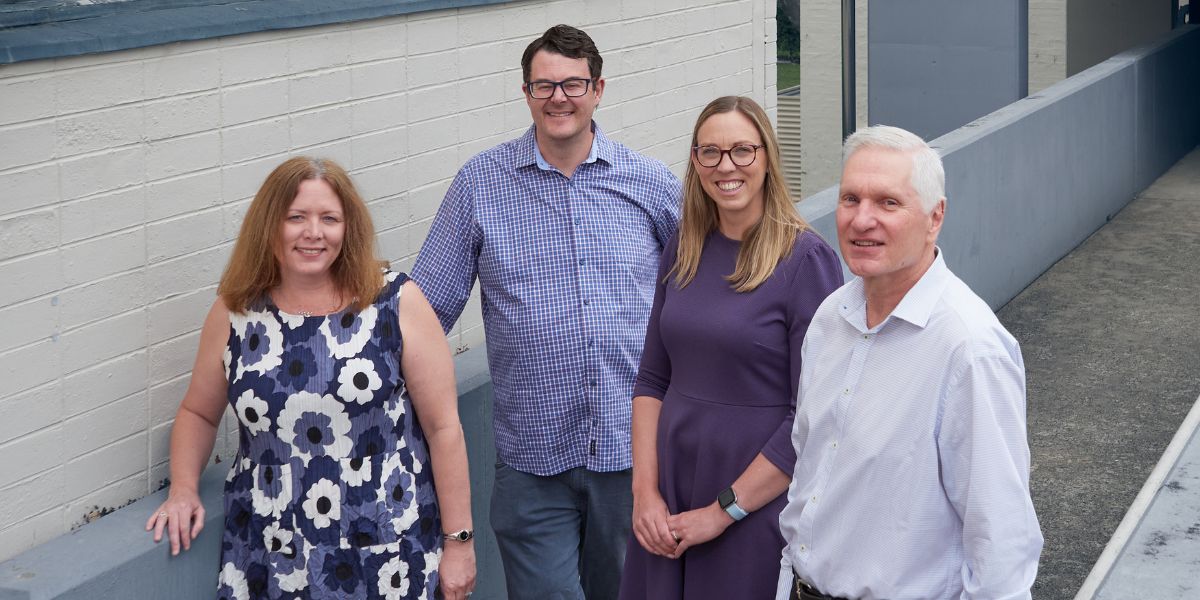A disaster preparedness model developed by the University of New England (UNE) has proven so successful it will be rolled out across NSW, South Australia and Western Australia over the next five years.
The project will be funded by a $5 million Medical Research Future Fund grant by Federal Assistant Minister for Mental Health and Suicide Prevention Emma McBride and will engage researchers, public health clinicians, industry and disaster relief partners.
Chief Investigator Associate Professor Suzie Cosh from UNE’s School of Psychology, says it represents a major investment in psychologically preparing rural communities for the increasingly severe and frequent extreme weather and disasters that will accompany climate change.
“The simple community-led framework we have developed and trialled in the New England could become a national blueprint,” said Assoc. Prof. Cosh.
“Under climate change, all communities, and especially rural and regional communities, will need additional support. Our model will help provide that.”
The Psychological wellbeing, resilience, preparedness and adaptation in rural communities for extreme weather project will involve researchers from UNE, the University of Adelaide, Curtin University, Federation University, University of South Australia and Colorado University in the United States.
Additional partners include local health districts and primary health networks, the Australian Institute for Disaster Resilience, the Australasian Fire and Emergency Service Authorities Council, Armidale Regional Council, Disaster Relief Australia and Meat and Livestock Australia.
“With community leadership and input from these stakeholders, we hope to embed our strategies in these towns and support organisations, to help ensure that knowledge and skills are retained,” Assoc. Prof. Cosh said.
“Our focus will be on small rural populations of under 15,000 people that are prone to natural hazards like drought, bushfire and flooding.”
“A lot of the resourcing to date has gone to disaster recovery. We now need to shift to preparedness, resilience-building and adapting to climate change, especially as more people are exposed. Physical preparedness needs to be accompanied by psychological preparedness, to promote community cohesion and protect mental health ahead of climatic events and to protect residents from future environmental threats.”
“This program is firmly embedded within the emerging public health discipline of One Health, which emphasises the interconnectedness of human, animal and environmental health.”
UNE Vice-Chancellor Professor Chris Moran says he is pleased to see UNE’s expertise in this space leveraged for national benefit.
“Our researchers appreciate that rural and regional communities have fewer support services and that much of the research conducted in metropolitan centres is not relevant to our settings,” said Professor Moran.
“Tailor-made solutions like this mobilise evidence and experience to build capacity in locations that are most vulnerable. I am thrilled to see UNE taking the lead with this critically important response.”
Assistant Minister Emma McBride says investment now means we’re safeguarding the mental health of generations to come.
“Investing in preventive mental health measures for Australians means we’ll be ready to deal with the mental consequences of the next COVID or bushfire.”
The first Australian trial of the framework, which was informed by responses to earthquakes in Haiti and Nepal, was carried out in the small New England town of Ebor last year, in the wake of devastating bushfires in 2019-20. Co-led by town leaders, it saw residents learn how to work together in a crisis, provide peer support and psychologically prepare to face a threat. Follow-up evaluation found the approach was accessible and effective in reducing stress and increasing resilience and preparedness.
The project will include the roll-out of the model in nine communities and longitudinal assessment of its outcomes.
Disaster Relief Australia Resilience Manager Shari Bent has witnessed the impact that severe weather events have on communities.
“Protecting homes and buildings is important but it is people that are the heart of every community,” she said.
“The trauma experienced is real, ongoing and significant. Accordingly, it is essential that we equip communities with the necessary tools to psychologically prepare for disasters. Managing the psychological impact of a disaster must be part of any conversation around disaster preparedness and teaching these skills must be part of the preparation process.”
UNE’s team includes Associate Professor Warren Bartik, Associate Professor Amy Lykins, Associate Professor Phillip Tully, Associate Professor Melissa Parsons, Professor Martin Thoms, Dr Amanda Jefferys and Dr Cassandra Sundaraja.
“Being a rural university, we are part of our communities, and well positioned to understand their needs,” Assoc. Prof. Cosh said.
“We have lived through some of these experiences ourselves.”
Something going on in your part of the region you think people should know about? Send us a news tip or email newsdesk@netimes.com.au.


